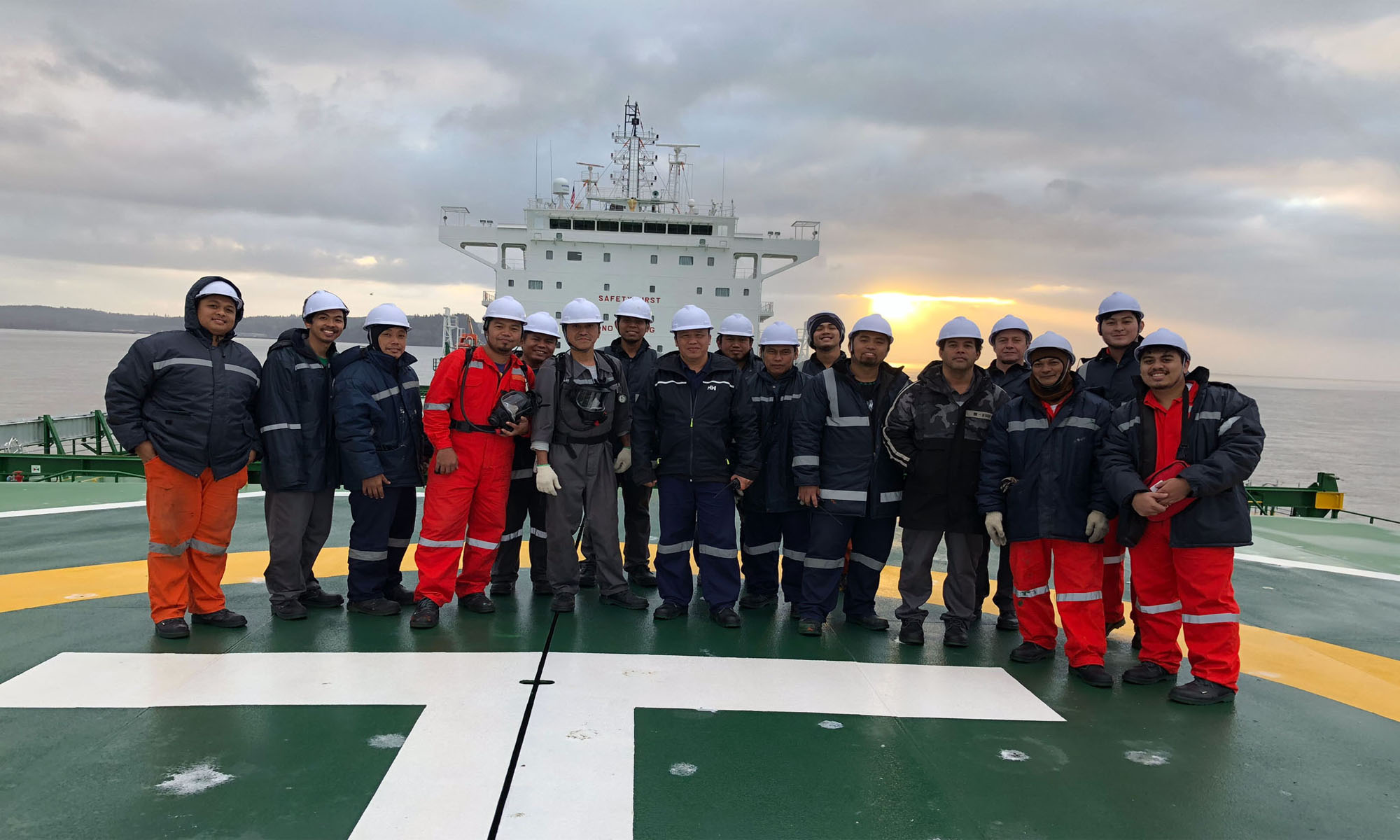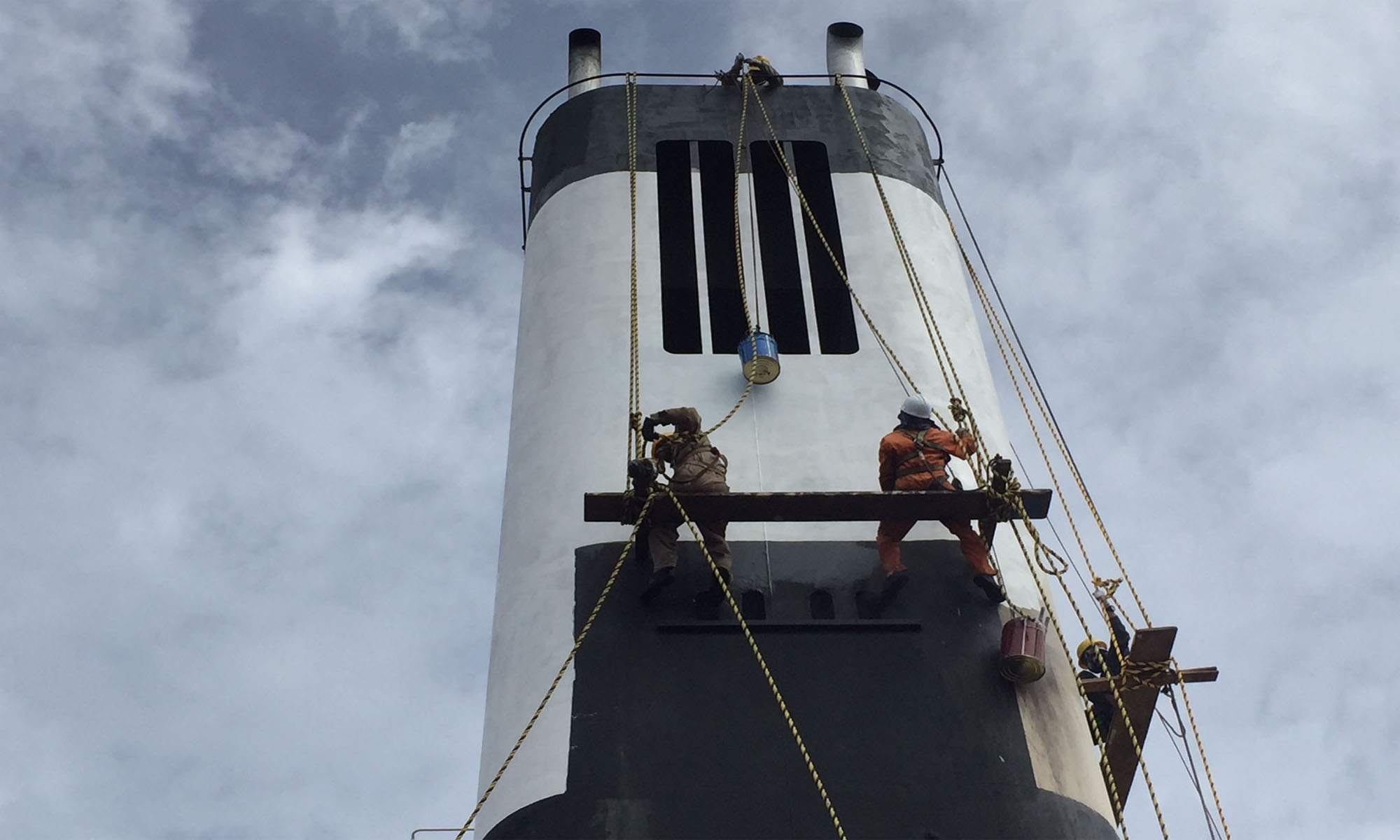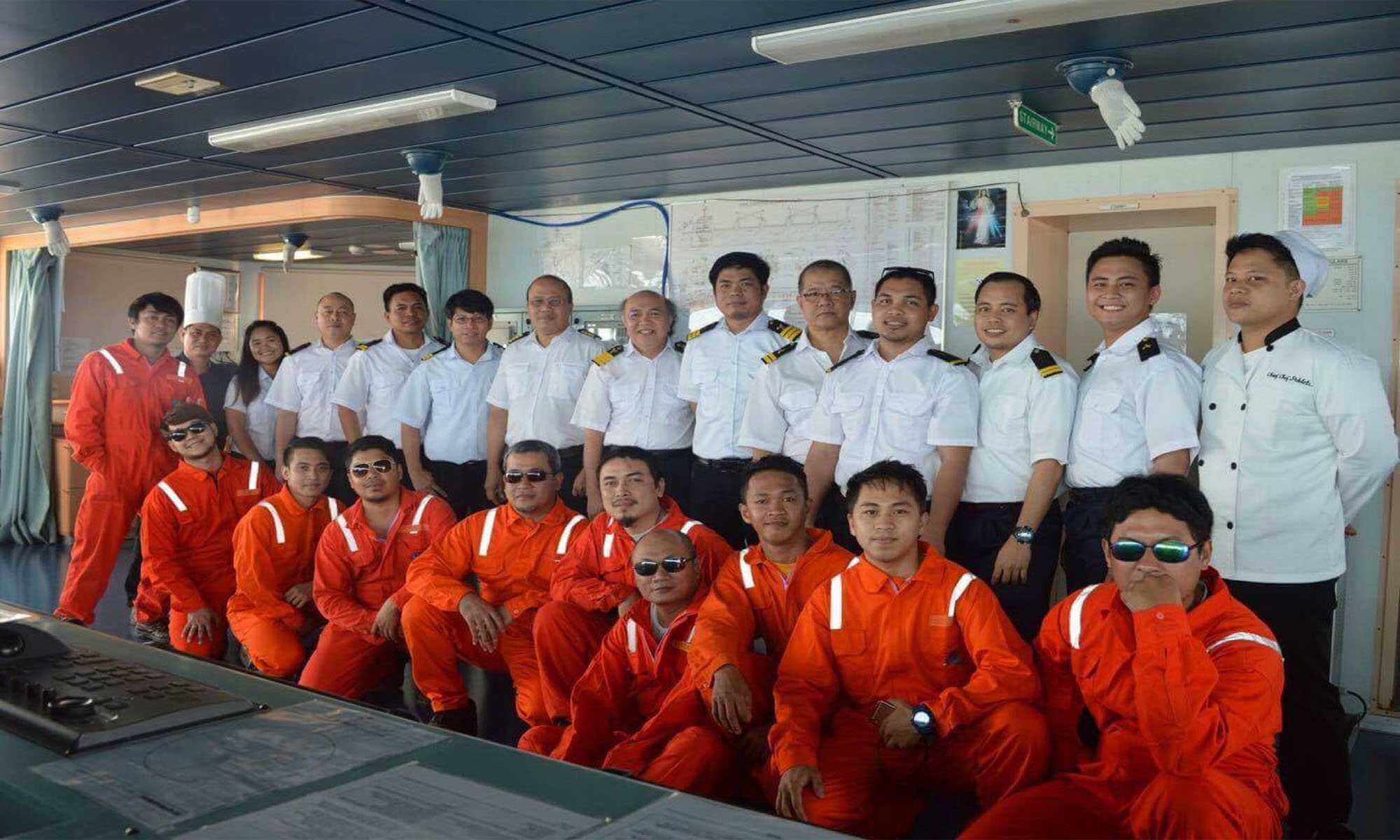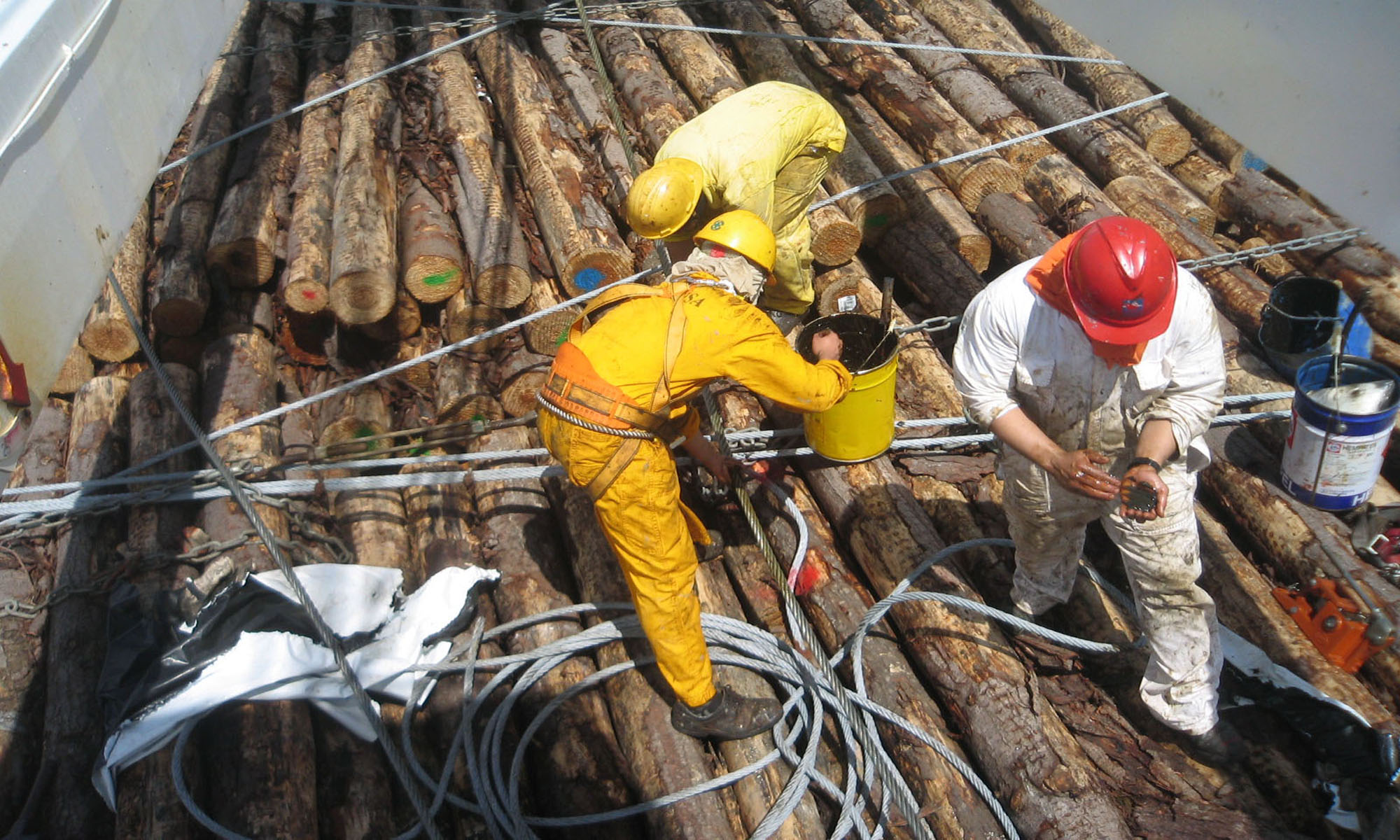
People think, behave, and act according to a particular set of principles in their dealings with other people. This set of values or principles is developed and are refined over time. Values such as respect start to be developed from childhood. Others like competence develop as we grow and become educated. That’s why it is important to start with the right set of values. Wrong values which have been embedded in a person’s personality or character would be difficult to correct or remove as the person grows older. So, what are these 8 core values that every seafarer must have in order to succeed in their career at sea? These are passion, respect, loyalty, responsibility, discipline, tolerance, humility, and generosity.
1. Passion
Passion is the fuel that drives a person to do what he loves to do despite all the odds that may come his way. It should be the first and foremost reason why you chose to go to sea and become a seafarer. Otherwise, you would not be happy at sea and you would not enjoy your job. With passion, you won’t wake up in the morning thinking that you are going to work. Instead, you wake up in the morning thinking that you will be doing something which you love to do for the rest of the day.
Without passion, you would go to sea with a heavy heart. Your contract would seem like a prison term where you start to look forward to the day of your “release” starting from Day One. Without passion, there is no motivation to do better. For a person who has no passion, it’s “just a job” and “just another contract” to fulfill.

Without passion, adverse weather, difficult work settings, and deviations in working hours are “hardships” that one has to endure on board. But seafarers with passion see these things differently. They see these as challenges and part of the career that they have chosen. They are proud not only of their job. They are also proud of the challenges that come with it.
Unfortunately, some people go to sea without the passion for seafaring They go to sea for economic or other reasons, not because they love the job. They go to sea unprepared for the physical and mental challenges. Those people pose a significant challenge to the shipboard team in meeting shipboard goals, because they have to be constantly encouraged and motivated.
2. Respect

Respect is a core value that starts in childhood. By the time you join the workforce, this value should have been already developed and refined. Simply put, respect is treating other people like you want to be treated yourself. Respect starts with oneself. You have to respect yourself first and make yourself respectable, without asking. Although we deserve respect as human beings, genuine respect is something that we earn and not ask for.
On a ship, respect does not only mean respecting your colleagues. Respect also means, respecting your job, your ship, your employers, the clients, the environment, the rules and regulations, the shore people, and all people that you deal with within the course of your work.
Respect is due for each and everyone in the shipboard organization, regardless of the rank. Being a Cadet does not mean that he is less respectable than the Captain. Everyone deserves their fair share of respect. And what better way to promote it than by following a top-down approach. Senior officers should lead by example so that junior officers and ratings would not feel intimidated. Respect should flow naturally, not forced.
A little courtesy and kindness can go a long, long way. A “please”, a “thank you”, a “you’re welcome”, a “let me do this for you” and other kind words can leave lasting impressions on a person. It can lighten a heavy load, brighten up a gloomy day, and warms the heart. Be kind even if others are not kind to you. It won’t cost you a cent nor a sweat. At the end of the day, you can sleep soundly, knowing that you have nothing against anybody.

Shipowners have spent a great deal of time, effort, and resources on their ship. When a multi-million dollar ship is entrusted to you, it is only fitting that you treat the ship and everything that goes with it, with respect and with care. After all, a ship can only be as good as how you take care of it.
When you are given a task to do, and you give it your best to get the best results, you are giving a great deal of respect, not only to your superior but also to yourself. And that doesn’t stop there. It has far-reaching implications that you may not realize. It goes up the chain of command on the ship, to the shore, to your employers, to the clients, and to the industry. Every single task that you do onboard when done to obtain the best results, contribute to the attainment of some of your employer’s goals, which are total customer satisfaction and a good reputation in the industry.
3. Loyalty
Every single voyage is a maritime adventure. It is an undertaking fraught with perils, the success of which requires a team effort. A team is made up of people with unique characters and personalities, with strengths and weaknesses. These people, with all their idiosyncrasies and imperfections, complement one another, with loyalty, towards a common goal.
Loyalty to a shipboard team means looking after each other’s back, making sure that no one runs into danger and ensuring that everyone is following the right track. In times of danger, team members depend on one another for survival. It is only fitting that they give one another their utmost loyalty and trust.

Loyalty means leaving no one behind. Each one in the shipboard team must survive, each one must advance. If you are loyal to your team, you won’t put anybody down. If one stumbles and falls, you will pick him up and help bring him up on his feet. If one feels down, you will cheer him up and lift his spirits. If one is weak, you will help to empower him and help him raise his level of competence and self-esteem. Loyalty means caring for your team so that at the end of your contracts, each one has made a positive impact on each other’s lives.
Loyalty means looking after and protecting the interests and reputation of your shipboard team, your ship, and your employers. A failure of one means a failure for everybody. Shortcomings, defects, incidents, and conflicts are best resolved internally, within the team, within the ship, and within the employer-employee scope. Negative publicity is bad for the team, and it’s bad for business.
Shipping is a commercial undertaking with inherent risks. As such, it has its ups and downs. An employer who supports its employees through good times and bad times deserves the same loyalty and support from its employees. Seafarers are workers. Our future and the well-being of our families depends on the success of our employers.
4. Responsibility

Seafarers come to work onboard armed with their competences and skills. And with competency comes responsibility. Responsibility does not only mean coming to work on time and getting off from work at knock-off time every single day. Responsibility is making sure everything is done and done correctly – all the time. If you have the competency, you know what you are responsible for delivering.
When you are competent, you are able to make decisions because you know what you are doing and you take responsibility for those decisions, whatever the outcome would be. A responsible person admits mistakes. A responsible person takes full accountability for all his actions and decisions. He is open and honest about things that went wrong or didn’t go well. He finds opportunities in mistakes in order to do better the next time. He shares his mistakes so that others will be aware and would not make the same mistakes.
5. Discipline

Discipline Is not only about waiting for one’s turn, or showing up on time, or about following rules, or doing and behaving in the appropriate way, even if no one is looking. Discipline also means being able to hold oneself in one piece even in the most difficult situation. A well-disciplined person does not break down and lose his control when under pressure. He stays focused and perseveres until he succeeds.
Discipline means being in control of one’s life and maintaining it in good order. Life’s essentials such as time management, health management, and meeting goals require a great deal of discipline.
Being a seafarer in the merchant navy requires utmost patience and discipline. With limited space and resources coupled with the perils of the sea, a ship must be in good order. Lack of or the absence of discipline and order can sink a ship.
6. Tolerance

A ship’s complement may be composed of young and old, of men and women, or somewhere in between. In today’s age of globalization, a ship’s complement may also be composed of several nationalities of different races, colors, or ethnicities. Each with its own unique character and personality, culture, values, religious beliefs, and political affiliation. Each with its own opinion on just about anything. With such diversity contained in a limited space in the middle of a vast ocean, what holds them together towards a common goal is tolerance.
Tolerance is accepting someone who is different from you in so many ways. Tolerance is doing away with all the biases, stereotyping, and discrimination. Such practices don’t have a place in a civilized world. Onboard, tolerance blurs the differences and enhances the clarity of the common purpose.
7. Humility

Humility is having the courage to admit one’s imperfections. Humility is being open to change. It is the realization that as long as we are alive, we are work-in-progress. Each day presents an opportunity for learning and an opportunity to remove bugs and install new updates, so that life would continue to be a meaningful and pleasant experience.
Humility is accepting the fact that others’ ideas may be better than yours. Yes, you have done the same task a gazillion times and you know you have perfected your art. But there will always be room for improvement. Let us be open-minded and reasonable people and welcome change with open arms.
No one opinion is stupid or insignificant. Everyone is entitled to his/her opinion or idea. Each one in the shipboard team, regardless of rank, deserves to be heard. Each opinion, each idea, is a significant contribution towards the attainment of the common goal. It takes a lot of humility to accept the fact that someone seemingly insignificant may know something that you do not know.
8. Generosity

Generosity is not only about sharing material things. It’s also about sharing knowledge and skills, sharing time, or lending a helping hand. By sharing, you are helping build lives. Sharing is a way of giving back after receiving so much. It is an expression of gratitude.
By mentoring the young, you are giving away precious knowledge and skills for future generations to enjoy. By sharing your knowledge, you are empowering people and helping them take control of their lives. By sharing your experiences, you inspire and help motivate people to become what they would like to be.
I would not be where I am now if not for the generosity of some people, some of whom I may never know. I am able to make this website and share content with you because of open source software and free tutorials. It’s never too late to start giving and making a difference in people’s lives. If you find my content useful, join the community, and help spread the word.
These are my values. What are yours? I would love to hear your comments and suggestions. Do drop me a line or two. If you find this article useful, don’t forget to share and subscribe. Cheers!

This article of yours is really of big help to all seafarers and seafarers-wannabe alike..!!! Great job mate..!👌👌👌
Thanks, mate!
Best thoughts and very well said. Thanks to one of my best captain Rex and my mentor👌👌👌a short period of time with you is unforgettable and memorable…hoping I’ve been given a chance again to sail with your ship in the near future.
Likewise. Safe voyages, Chief!
A good read for all seafarers, our Captain!
Great to hear from one of the smartest and most promising young officers that I’ve worked with! Carry on, Marko! 🙂
Nice article Capt.Rex! You cemented it perfectly! God bless and more power…
Thanks, Capt! Safe voyages!